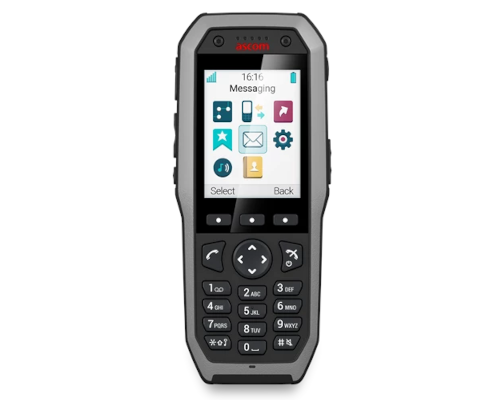Ascom Australia launches a new handset, the d83.
Ascom, a global solutions provider focused on healthcare ICT and mobile workflows, today announced the d83 handset available for the Australian and New Zealand Market. Ascom designed the d83 to be reliable, robust, and professional-rated for environments where communications are mission-critical.
The d83 uses digital enhanced cordless technology (DECT) technology to deliver reliably clear voice and data on its independent network. Two noise-cancelling microphones paired with up to 120 hours of standby, up to 18 hours of battery life for talk time, and a replaceable battery for 24/7 operations make the d83 the ideal handset in environments where reliability comes first. Additionally, it comes equipped with a powerful loudspeaker to counteract noisy environments using Ascom’s intelligent Adaptive Noise Reduction algorithm.
The messenger version of the d83 also includes various safety features for lone-worker situations. For example, workers can push a button to trigger an audible or silent duress alarm to get help. The man-down feature tracks employees accurately using location finding and Bluetooth Low Energy and Infrared technology. The device can be set to alarm when there’s no movement after a specific time period, and alarming can occur if someone pulls the device away from a worker. These features offer peace of mind for workers in hospitality, retail, industry, and healthcare.
Ascom engineered the d83 to withstand some of the harshest conditions to meet nearly any demand workers put on it. The handset meets the IP67 classification, passing tests for water spills, dust, and accidental contact. Easily sanitised, the device meets the daily demands of heavy, physical use.
David Williams, Country Manager at Ascom, says: “The ability to offer a durable device that is fit-for-purpose that strengthens our combined offering, so our customers can have confidence in the end to the management of communication and duress solution.”
The d83 features encryption for voice and data that classifies for Ascom DECT network security. It has shared phone capability to maximise the investment of purchasing the equipment. With centralised management, administrators can use Ascom’s middleware, known and used in acute healthcare facilities, to prioritise, filter, colour-code, and route messages to the right receiver.


